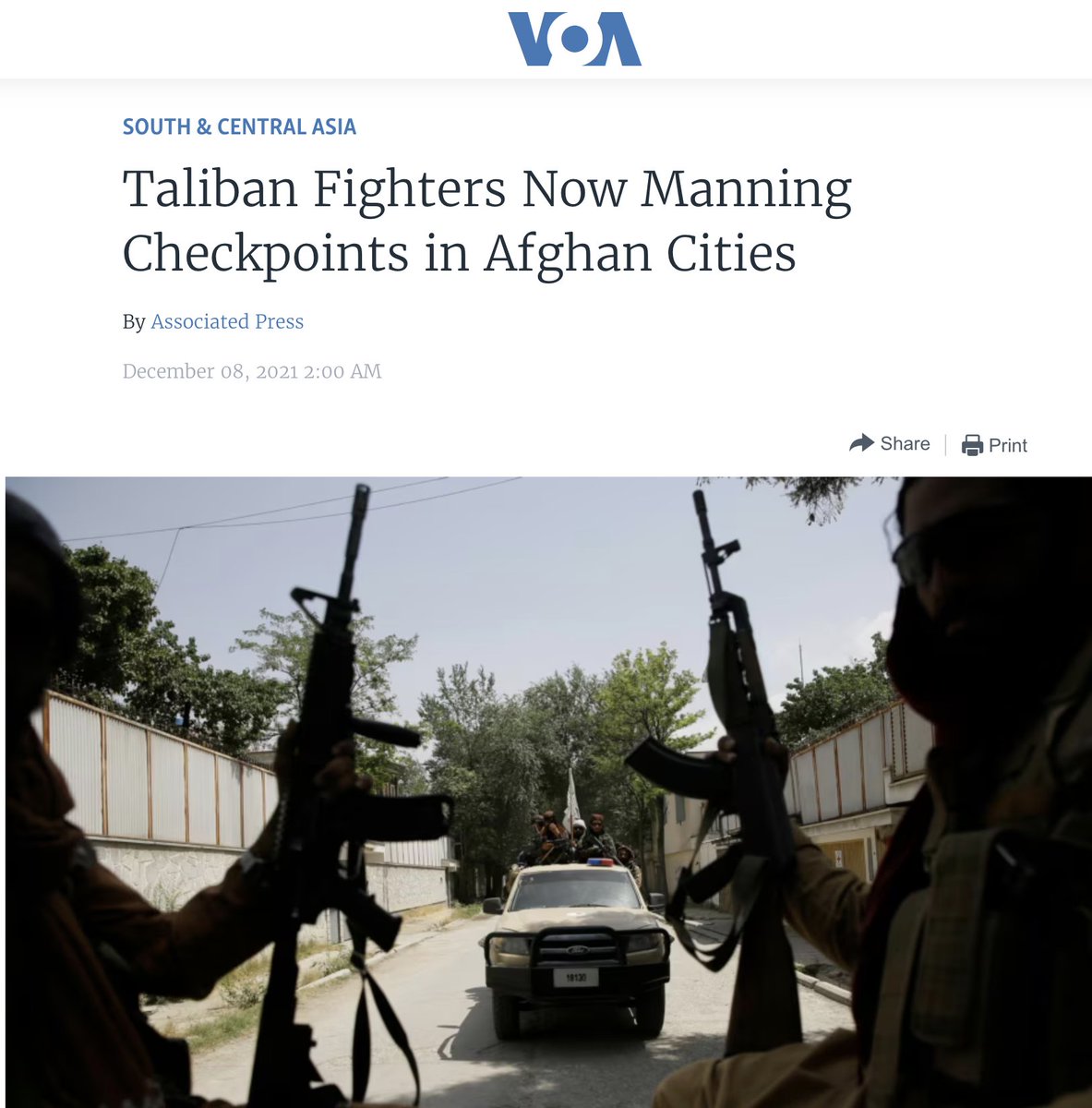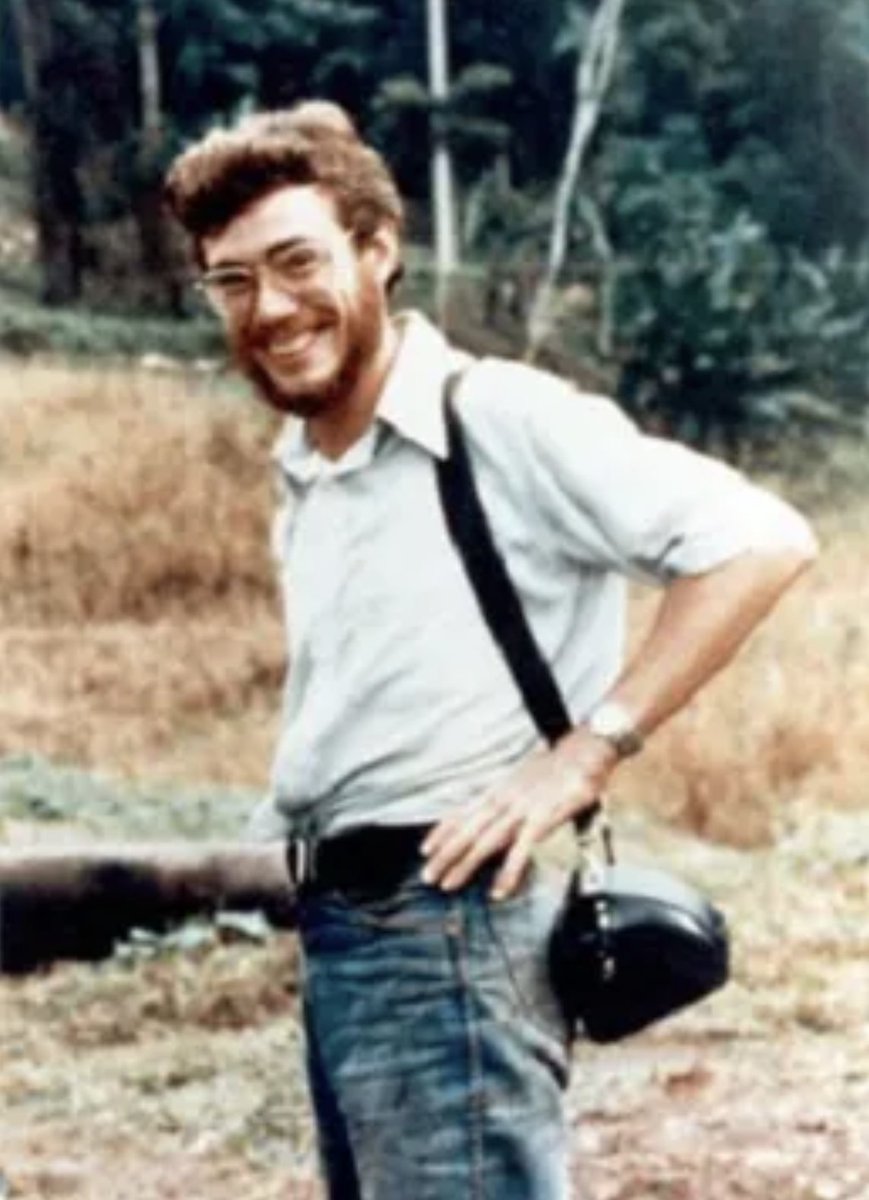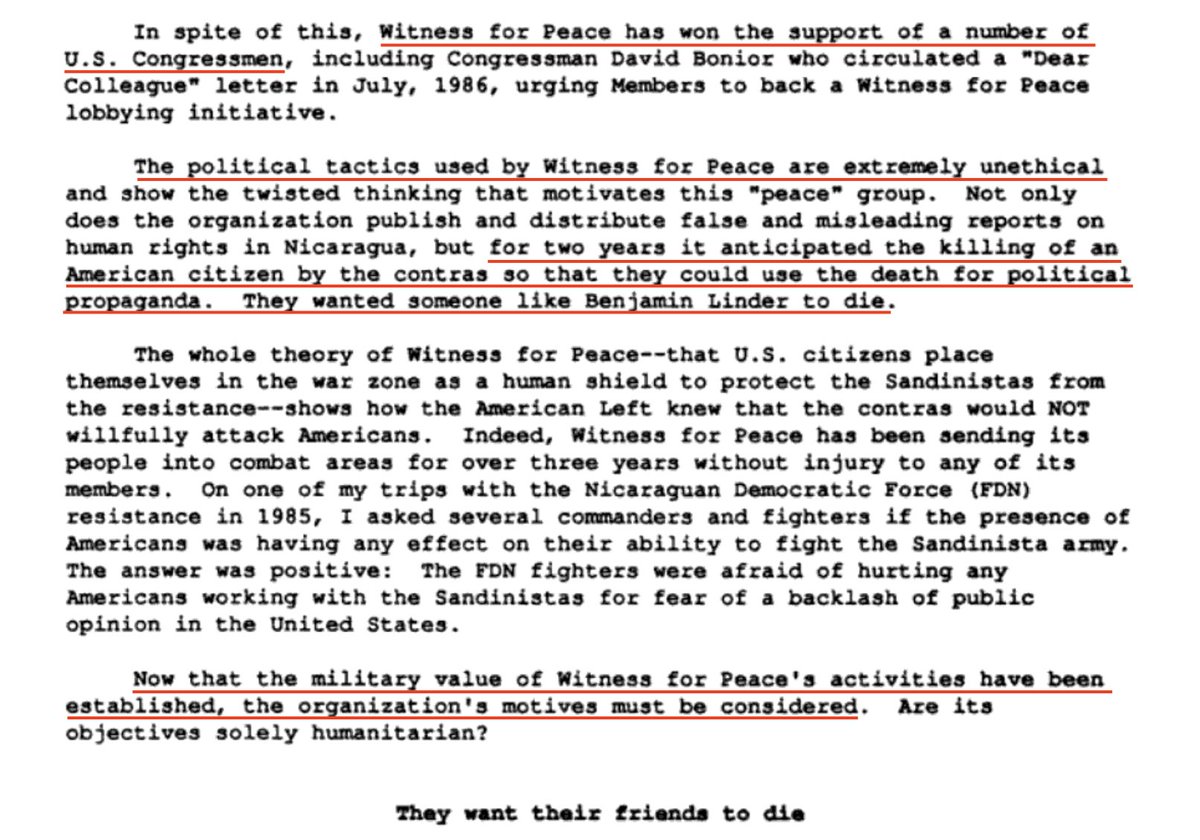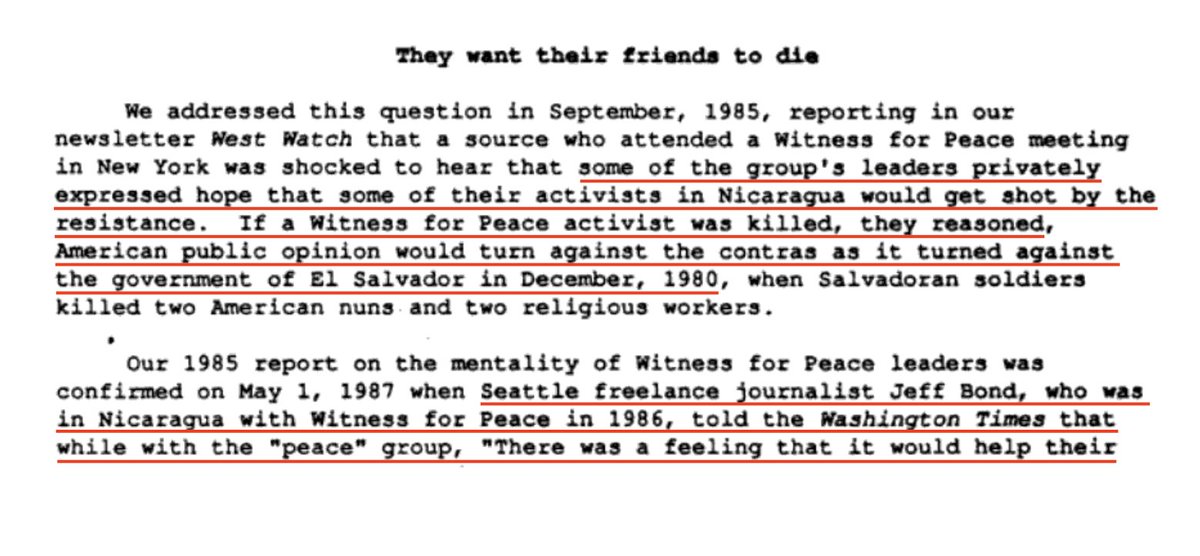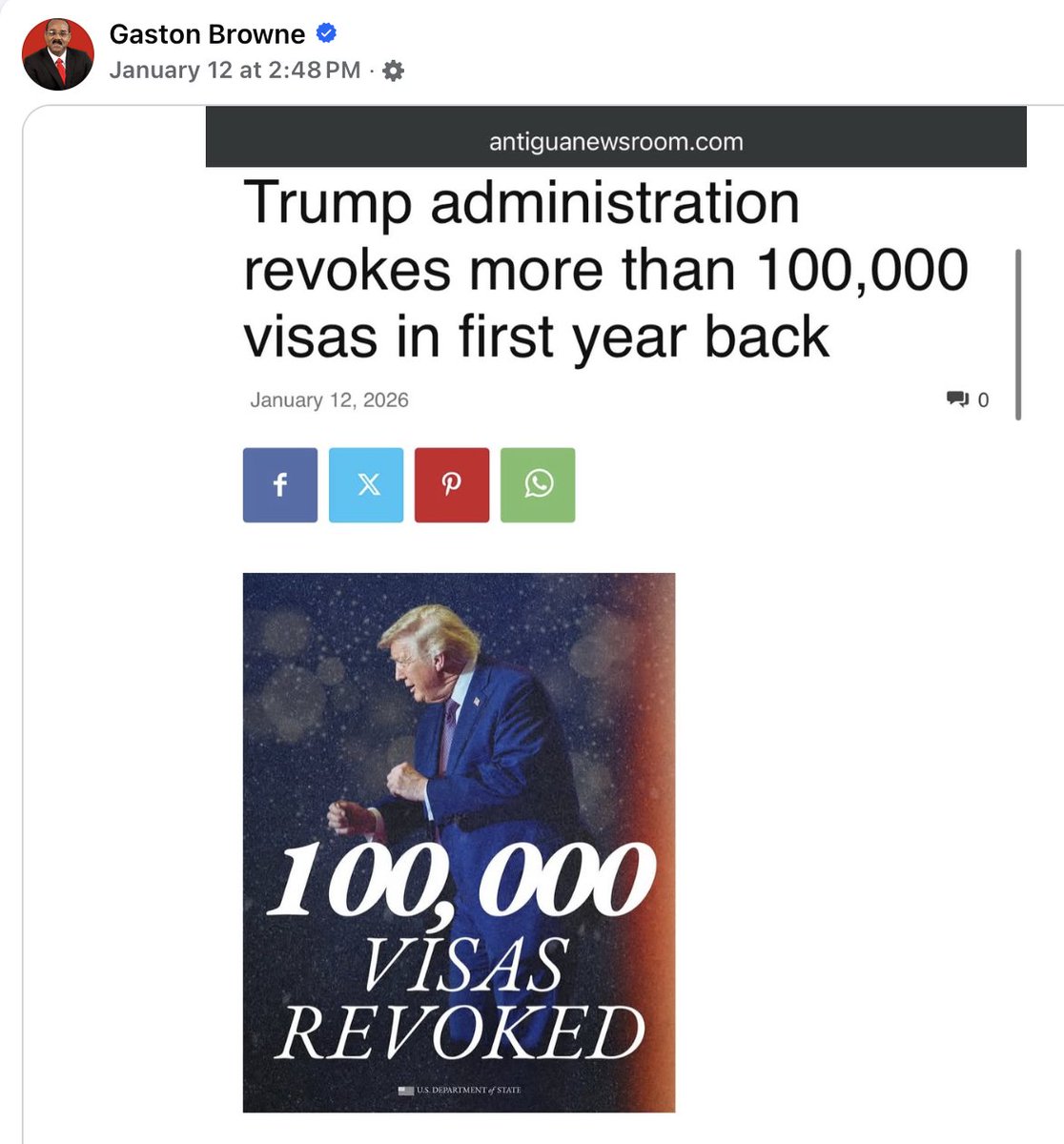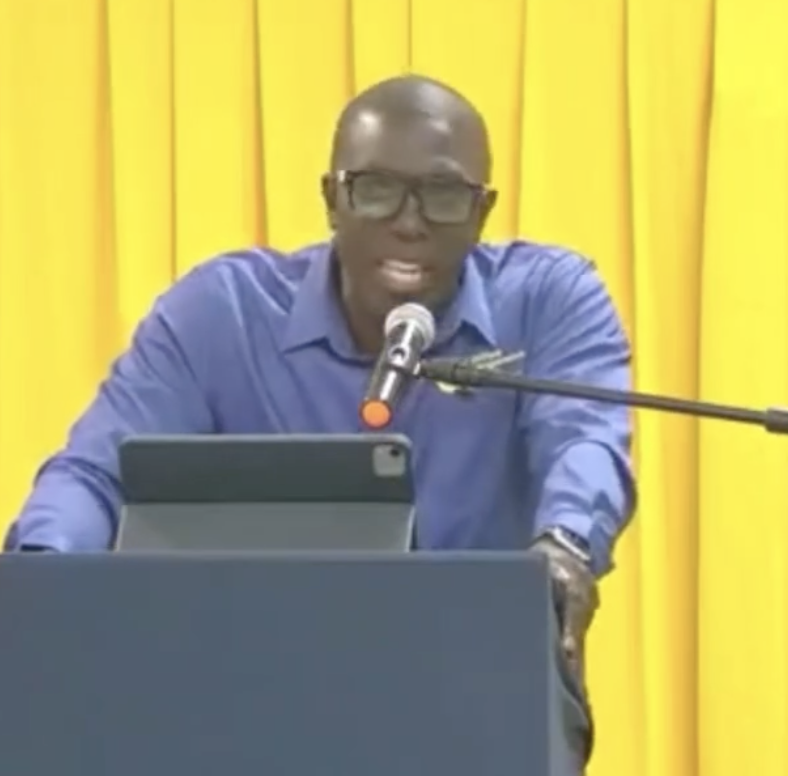🧵In 2005, the bipartisan Commission on Election Reform, co-chaired by Jimmy Carter and James A. Baker III, expressed concerns about electronic voting systems.
Since then, the Carter Center & Baker Institute scrubbed their websites of the report. 👉
web.archive.org/web/2005092212…
Since then, the Carter Center & Baker Institute scrubbed their websites of the report. 👉
web.archive.org/web/2005092212…
2) Carter-Baker report, pp. 25-27: Voting machines lack transparency.
“Voting machines must … be transparent. They must allow for recounts and for audits, and thereby giver voters confidence in the accuracy of the vote tallies.”
“The accessibility and accuracy of DREs [direct recording electronic machines], however, are offset by a lack of transparency, which has raised concerns about security and verifiability. In most of the DREs used in 2004, voters could not check that their ballot was recorded correctly. Some DREs had no capacity for an independent recount.”
“Voting machines must … be transparent. They must allow for recounts and for audits, and thereby giver voters confidence in the accuracy of the vote tallies.”
“The accessibility and accuracy of DREs [direct recording electronic machines], however, are offset by a lack of transparency, which has raised concerns about security and verifiability. In most of the DREs used in 2004, voters could not check that their ballot was recorded correctly. Some DREs had no capacity for an independent recount.”

3) Carter-Baker report, p. 27 says there are no standards of transparency for voting machines (and, by implication, software):
"The standards for voting systems ... should assure ... transparency in all voting machines. Because these standards usually guide the decisions of voting machine manufacturers, the manufacturers should be encouraged to build machines in the future that are both accessible and transparent ….”
"The standards for voting systems ... should assure ... transparency in all voting machines. Because these standards usually guide the decisions of voting machine manufacturers, the manufacturers should be encouraged to build machines in the future that are both accessible and transparent ….”

4) Recommendations: “Congress should pass a law requiring that all voting machines be equipped with a voter-verifiable paper audit trail …. This is especially important for direct recording electronic (DRE) machines for four reasons ...." 

5) The 2005 Carter-Baker Commission on Federal Election Reform called for "regular audits" of "all voting machines."
Page 28: "If DREs can be manipulated to alter the vote tallies, the same can be done with paper audit trails. Such manipulation can be detected and deterred by regular audits of voting machines. Regular audits should be done of all voting machines, including DREs and optical scan systems."
Page 28: "If DREs can be manipulated to alter the vote tallies, the same can be done with paper audit trails. Such manipulation can be detected and deterred by regular audits of voting machines. Regular audits should be done of all voting machines, including DREs and optical scan systems."

6) Carter-Baker cited the vulnerability of electronic voting system software, especially from "insiders" (p. 28).
"The greater threat to most systems comes not from external hackers, but from insiders who have direct access to the machines. Software can be modified maliciously before being installed into individual voting machines. There is no reason to trust insiders in the election industry any more than in other industries, such as gambling, where sophisticated insider fraud has occurred despite extraordinary measures to prevent it."
"The greater threat to most systems comes not from external hackers, but from insiders who have direct access to the machines. Software can be modified maliciously before being installed into individual voting machines. There is no reason to trust insiders in the election industry any more than in other industries, such as gambling, where sophisticated insider fraud has occurred despite extraordinary measures to prevent it."

7) Candidates and ordinary citizens should be allowed to audit "the inside process of programming" electronic voting systems, Carter-Baker said:
"In addition to the output of DREs, which can be verified through a paper audit trail, the inside process of programming DREs should be open to scrutiny by candidates, their supporters, independent experts, and other interested citizens, so that problems can be detected, deterred, or corrected, and so that the public will have confidence in the machines."
"In addition to the output of DREs, which can be verified through a paper audit trail, the inside process of programming DREs should be open to scrutiny by candidates, their supporters, independent experts, and other interested citizens, so that problems can be detected, deterred, or corrected, and so that the public will have confidence in the machines."

8) Carter-Baker: Electronic voting companies should provide their source code to the National Institute of Standards and Technology, and make "the source code available for inspection on a restricted basis to qualified individuals." 
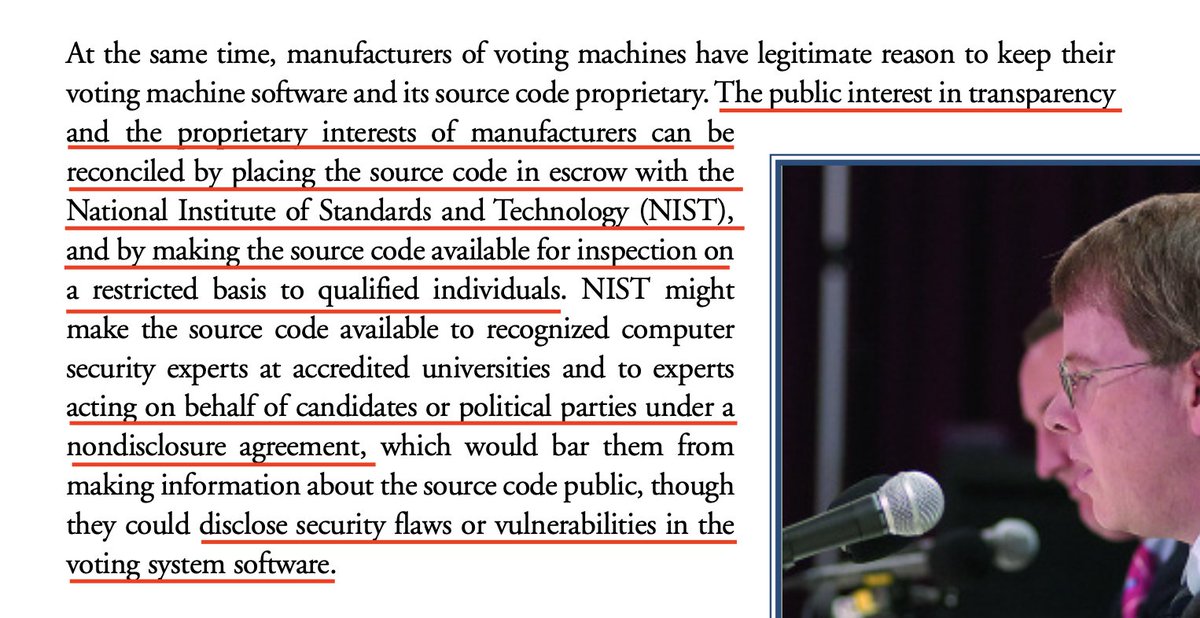
9) Carter-Baker, p. 29: "Independent inspection of source codes would strengthen the security of voting systems software by encouraging manufacturers to improve voting system security. Expert reviews may also detect software design flaws or vulnerabilities." 

10) Carter-Baker commission also discusses software problems:
"In addition to the source codes, the software and the voting machines themselves are potentially vulnerable to manipulation.... . When voting machines are tested for certification, a digital fingerprint, also known as a 'hash,' of their software is often sent to NIST. Following the delivery of new voting machines, a local jurisdiction can compare the software on these machines to the digital fingerprint at NIST. This comparison either will identify changes made to the software before delivery or, if the software is unaltered, will confirm that the software on the individual machines meets the certified standards." (p. 29)
[My comment: The comparison can be made after delivery/voting, too.]
"In addition to the source codes, the software and the voting machines themselves are potentially vulnerable to manipulation.... . When voting machines are tested for certification, a digital fingerprint, also known as a 'hash,' of their software is often sent to NIST. Following the delivery of new voting machines, a local jurisdiction can compare the software on these machines to the digital fingerprint at NIST. This comparison either will identify changes made to the software before delivery or, if the software is unaltered, will confirm that the software on the individual machines meets the certified standards." (p. 29)
[My comment: The comparison can be made after delivery/voting, too.]

11) Carter-Baker anticipated "deliberate manipulation of vote results" in electronic systems & said that manufacturers "unwilling to submit their source codes for...supervised testing and for review by independent experts should be prohibited from selling their voting machines." 

12) Carter-Baker: "Fraud in any degree and in any circumstance is subversive to the electoral process. The best way to maintain ballot integrity is to investigate all credible allegations of election fraud and otherwise prevent fraud before it can affect an election."
BONUS: In 2005, the bipartisan Commission on Electoral Reform, co-chaired by Jimmy Carter and James A. Baker, found that foreigners had already (illegally) registered to vote in American elections. web.archive.org/web/2005092212…


ANOTHER BONUS: The 2005 Carter-Baker Commission on Federal Election Reform called for Voter ID, audits of voter databases, and more. No wonder they purged the Web of this when circumstances changed. 

• • •
Missing some Tweet in this thread? You can try to
force a refresh


